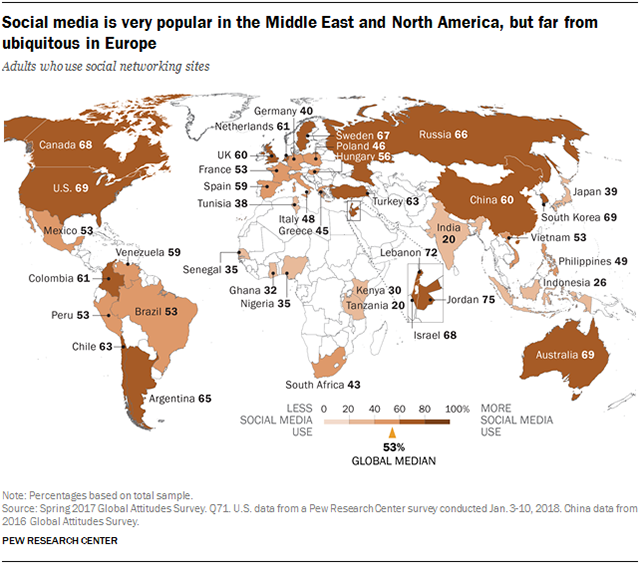How big are social media? THIS BIG!
In april 2020, 4.57 billion people were active internet users and 3.76 billion were active on social media.
In recent years internet use is increasing globally and social media platforms make it easier to stay connected to people all across the world. In 2019 half of the world’s population were online users (link). In april 2020, 4.57 billion people were active internet users and 3.76 billion were active on social media. That means that one third of the world population is active on one or several social media! The most popular social media platforms are Instagram, Youtube and Facebook. Facebook is the largest social media and has 2.4 billion online members, but also apps as What’s App have more than a billion users (link).
The Internet has become especially important in young people’s lives, regardless of income level. In developed countries 94% of people aged 15-24 are online and this is more than 65% of young people in developing countries. These numbers are much higher than the internet use of the general population (source link) While the use of internet and social media have stayed mostly stable in developed countries, the developing countries have seen a steady increase in internet use in the past 5 years.
It is interesting to see that people in developing countries are more likely to network via platforms as Facebook and Twitter than people in developed countries.
The same thing trend was seen in how many people in developing countries owned a smartphone, a phone that can access the internet and apps. High rates of social media use were for example noted in Jordan, Lebanon, Philippines and Indonesia. It is interesting to see that people in developing countries are more likely to network via platforms as Facebook and Twitter than people in developed countries. This also shows how important social media have become in daily life as for example to find a job or an organization that can help you (source: link). It is therefore that internet access, and safety online are seen as human rights issues and as an important factor in the fight for gender equality (source (link).
